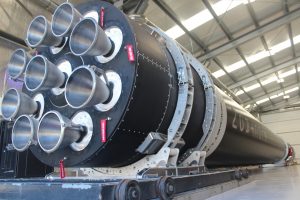In a matter of hours, British startup Aeternum Space will see the launch of its maiden space memorial service. The satellite will be launched on an Electron Rocket from Launch Complex 1, on New Zealand’s Māhia Peninsula.
Aeternum’s ‘space mausoleum’ will orbit the Earth for around five years, with viewers back on earth being able to track its progress above the Earth on a live map via Aeternum’s website. Once the satellite ends its five-year journey, it will begin to re-enter the Earth’s atmosphere, lighting up the sky as a shooting star.
The maiden mission is named ‘Levantine’ after the route the earliest human explorers took to venture out of Africa, and its launch is scheduled for 4 July 2020 at 10pm UK time (9pm UTC) pending clear weather conditions. While those in New Zealand may watch the launch with their own eyes, viewers at home will be able to receive updates on Aeternum’s Twitter and watch the launch via live stream at the following link: https://www.rocketlabusa.com/live-stream/
Aeternum’s future plans include a mission which will drift in space for tens of thousands of years, with ashes sitting alongside digital archives of customers’ lives. Customers will also be able to include digital sequences of their DNA, with the possibility of future generations or even civilisations discovering these untouched space time capsules in distant millennia. The first such launch will be in about a year’s time.
CEO Alan Webb had to say of the launch: “We started Aeternum several years ago with one vision – a memorial service which rejects the finality of traditional funeral services by embracing the endlessness that the infinite expanse of space represents. We’re absolutely delighted to now be sharing the culmination of that vision with the world”.

ABOUT AETERNUM
With a combined 50 years’ experience arranging space launches in Commercial Space Technologies, the Aeternum founders started the company in 2016 driven by a shared desire to make space accessible to all. The Lavantine Mission was facilitated by In-Space Missions’ Faraday-1 Satellite on an Electron Rocket by Rocket Labs USA.

